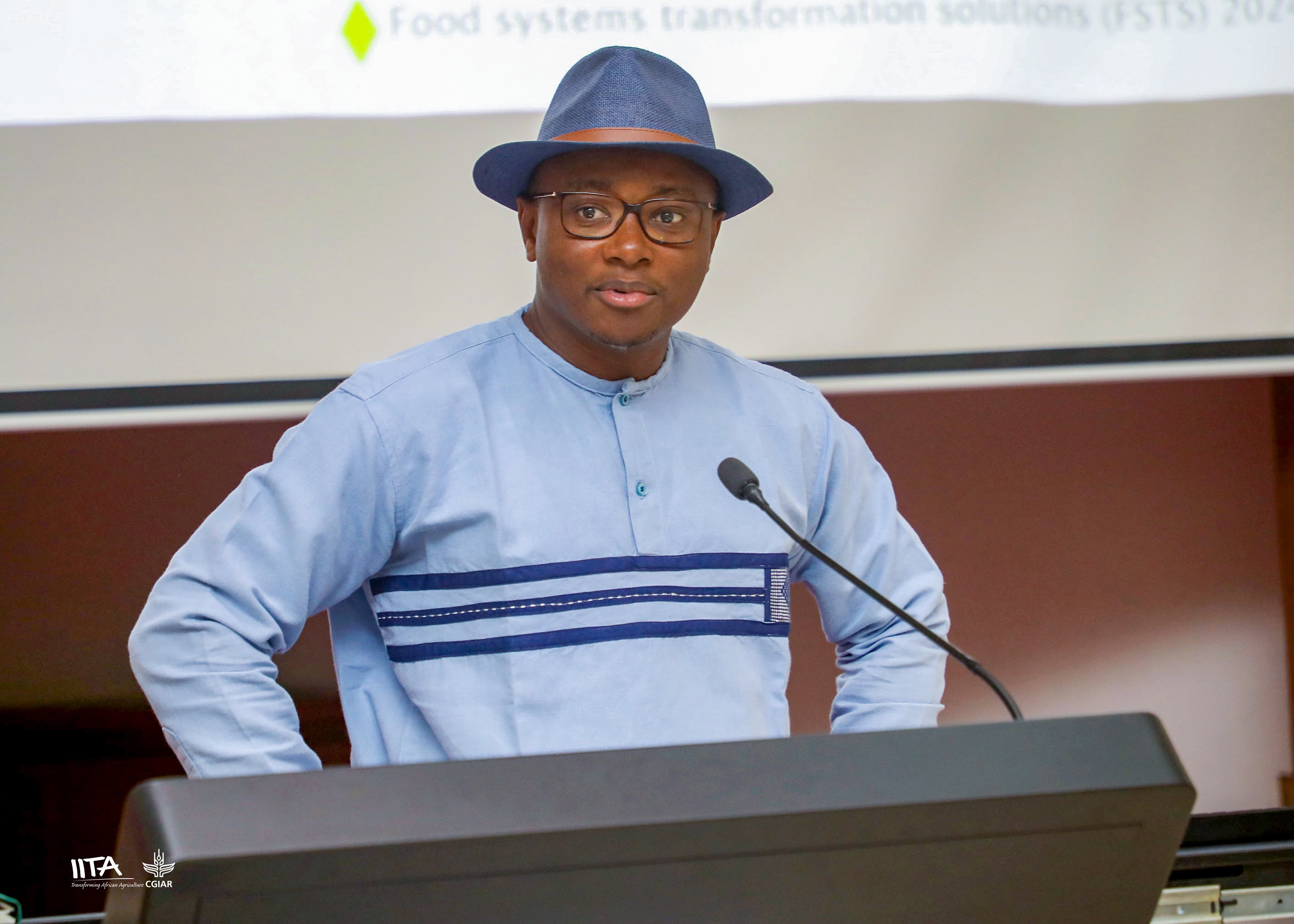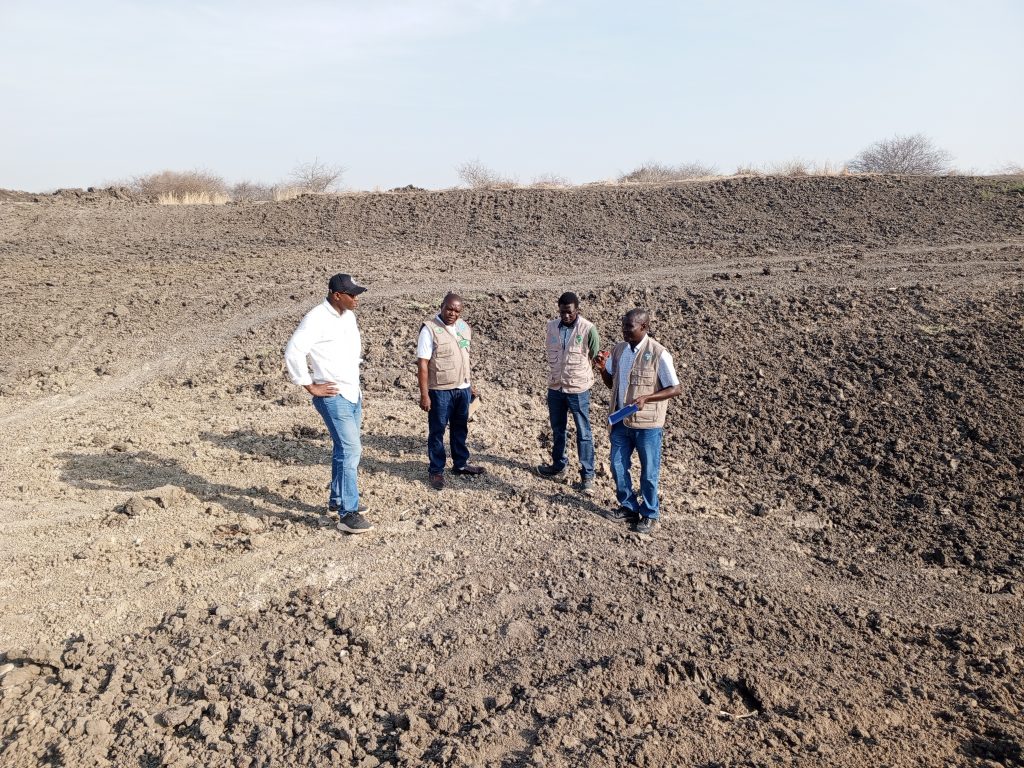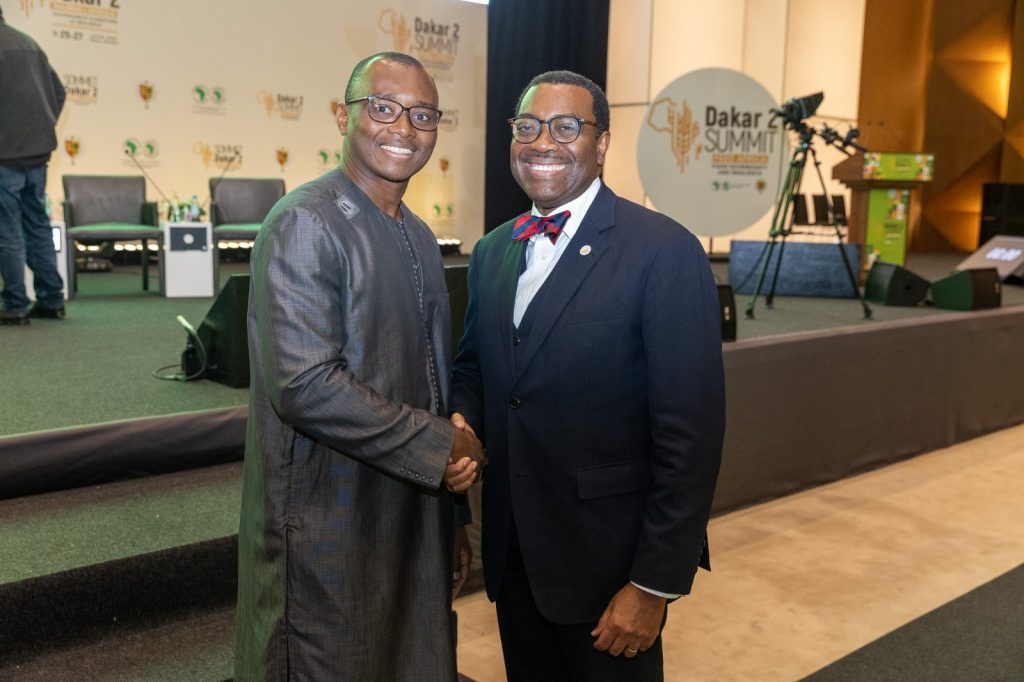Oumar Ndiaye (EM.22), a Facilitating Agent for Africa’s Development

Juggling between refugee camp visits and political negotiations, Oumar Ndiaye (EM.22), executive director of African humanitarian organization AIRD, stresses the significance of pursuing careers in development.
Oumar Ndiaye picks up the call from Addis Ababa, Ethiopia. There, the African Union has been working on rethinking funding mechanisms in response to humanitarian crises for the past three weeks. As the new executive director of the African Initiative for Relief and Development (AIRD), Oumar is at the negotiating table, aiming, among other things, to reduce dependency on Western funds. “Today, in the event of floods occurring, people tend to shout: ‘USA! Europe!‘ But we can have the means to intervene first.”
Passionate about politics, this native of Mali, who graduated in international relations and holds an Executive MSc in Innovation and Entrepreneurship from HEC, grew up all across Africa. As a child, he followed his father, first a soldier and then a diplomat, in “30 countries out of 52“, Oumar Ndiaye counts. “When he was a consul, I saw him crossing minefields to rescue people,” Oumar recalls, admitting this is where he earned his sense of duty.
United Nations, WaterAid, the International Rescue Committee, International Nutrition… For fifteen years, Oumar has worked with the largest NGOs on issues of access to water, sanitation infrastructure, food security, and the reception of war refugees. In 2010, as a coordinator, he was part of the first team to implement the United Nations reform aimed at unifying the work of its 24 agencies and funds.

Oumar Ndiaye and the AIRD team visiting a community water catchment in construction at the border of Sudan, in Renk, South Sudan.
By joining AIRD in May 2023, an organization with 1,700 employees in 16 countries, Oumar Ndiaye agreed to “lower his package.” It was “the right thing to do” to help grow a humanitarian structure 100% based in Africa. In charge of strategic development, he plans to secure public-private partnerships and expand AIRD abroad to Yemen and Afghanistan, leveraging a particular “expertise”: developing infrastructure and transporting refugees in areas plagued by humanitarian crises. His organization is notably a logistics partner of UNHCR (the United Nations High Commissioner for Refugees). “The largest refugee base in Sudan, the Renk transit camp, was built by our organization,” explains Oumar.
“I have always wanted to inspire African youth”
When not dealing with highly sensitive issues, Oumar Ndiaye returns to his home in Kampala, Uganda, to spend time with his wife and four children. After our interview, he has to rush to the airport to make up for a mishap. “Last week was my son’s birthday, and I missed it.” With most of his days packed, he generally hops from plane to plane. “In the morning, I talk to the [humanitarian convoys] drivers on the ground. At midday, I’m online with a minister, and in the evening, with a president.” His biggest challenge? Reconciling three worlds: fieldwork, business, and politics. “The main challenge is to connect these three realities. Everyone lives a bit in their own bubble.” Apparently, Oumar regularly invokes his human-centered design courses from his MSIE HEC master’s degree.
One major issue “keeps him up at night”: the future of African youth. Since joining AIRD last March, he has been working on an ambitious partnership with the CFAO-Toyota group to create a vocational training center for logistics, transport, agriculture, and “green transformation” jobs. Total of this investment: 1 million dollars.

Oumar Ndiaye during the Dakar 2 Summit on food security in Africa alongside Dr. Akinwumi A. Adesinadu, president of the African Development Bank, january 2023.
The green revolution, or sustainable agricultural revolution in Africa, is another priority for the development specialist. “The green revolution in Africa will necessarily happen through small farmers,” asserts Oumar Ndiaye. On a continent where family farming predominates, 33 million farms of less than 2 hectares make up 80% of all agricultural enterprises. These remote lands are often far from processing plants, and their farmers lack logistical means to store their fruits and vegetables, work without technologies or access to weather information, particularly rainfall. The result? On average, “40% of the harvests perish” each year. “If you want to work with all these people, you need a great force of coordination.”
However, Oumar Ndiaye remains positive. He wants to share his journey to inspire future graduates to drive change. “I have always wanted to inspire African youth,” he confides. Even though he ventured into entrepreneurship in 2022 by creating, with a friend, his firm Food Systems Transformation Solutions and works as a consultant with institutions like the African Development Bank, he wants to see “more HEC skills mobilized in the development world, and not just in start-ups. Start-ups are excellent, but that’s not everything; there’s another world out there.“
Published by Estel Plagué

